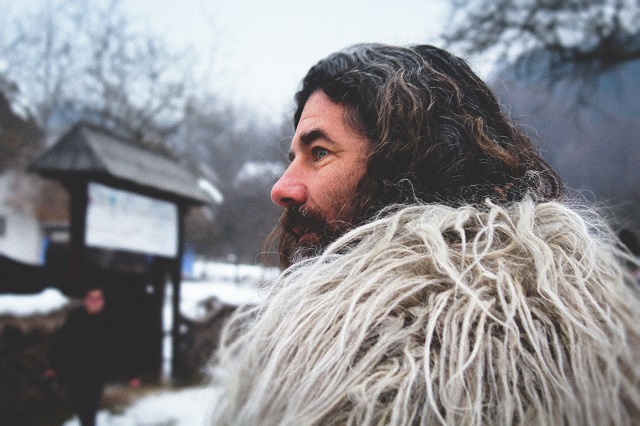We work too hard.
And the majority of things we work on and for are of questionable importance.
This is a truth many of us may only briefly consider on those occasions when we are forced to go to work on a beautiful Saturday, during the holidays, or perhaps every Monday morning.
We, as a culture, spend too many hours away from the things and people we love. We sacrifice family for something not nearly as valuable. We let our deepest talents go unfulfilled, whilst spending too much time developing ones that are less than soulful, less than satisfying.
We use distractions like alcohol and drugs, technology and social media, toys and gadgets, news and sports to medicate and mitigate the loss of our dreams, the loss of our selves. Worse, we teach our children to settle for something, rather than define their passions and go after their dreams, with all the blessings, lessons, and combinations of the two that are the property of the truly adventurous.
I decided about a decade ago that things were not as I had been taught they were. I went on a journey that has made my life far more difficult in some ways, but deeply rewarding in others. And I would do it again in a heartbeat.
This journey has led me from a 3,400-square-foot home in Bend, Oregon with a view of Mount Bachelor, new cars, and all the “goodies,” paid for by work that was not soulfully satisfying, to living in a tipi in the same area. It’s taken me from a job selling surgical supplies and feeling like I was contributing to a system that was—and, indeed, still is—broken, to a plethora of careers with which I’ve only stuck to the extent that they served my soulful needs, rather than my often egoistic wants.
I’ve become a fearless wanderer and explorer of my own inner realms, which are as vast as any universe.
To do this, I’ve cut my bills—substantially. In that way, it has been, and continues to be, a process. I want to get to a place where I can live comfortably on $1,200 a month or less. It currently costs about $1,900 per month for me to live, pay child support, cover my minimal taxes and $250 for rent on the five acres of land I occupy, and still have money to do a few “fun” things.
As it’s important to me to eat healthy, I spend more than most on food because I want it to feed my soul as well as my body. The important shift here was to focus on my needs, not my wants or financial goals. And while these are still substantial, they are tempered by my determination to only do meaningful work to fulfill them.
I live this way because my inner explorations have led me inexorably to the decision to live with nature rather than insulating myself against her.
One benefit is that I’m not throwing money down the rabbit hole toward water, sewer, electric, gas, or other extraneous bills of which I have no need—so more can be spent on soulful food or other things that feed me. As you can imagine, no utility bills means no utilities. So, what do I do for heat, for instance? Note that I live in Central Oregon. We had five feet of snow in town this past winter. I’m still a little chilled.
I promise you, there were times coming home after dark when I was not looking forward to shoveling snow from around my tipi. (They need air in order to have an effective fire inside, and that comes from underneath the bottom of the tipi cover.) After that was done, I may have had to chop kindling, then take my solar battery inside and plug it in so I had some light and music. Then, there was the task of making a fire in my woodstove. It took about 30 minutes in the dead of winter to get above freezing. Only after these things were done was I able to start dinner—in the dark, by headlamp, in my outdoor kitchen, sometimes in single-digit weather.
Believe me, no matter what I made on those days tasted like the best thing I’d ever eaten. Any camper knows that feeling.
For the record, I chose to have an outdoor kitchen rather than an indoor one because I wanted to keep the interior of my tipi round, rather than squaring one side of it with my six-foot counter top. This is a symbol of my own commitment to my own decisions. Yours may not be that radical, or they may be more so. Whatever we decide is our own path, our own journey. Our sacrifices are, in this way, our shovels, uncovering what has been unnecessarily buried by a culture that wants conformity at the expense of consciousness.
What’s important is to consistently question what those things are for us; to determine what’s truly keeping us from jumping into the flowing river life truly wants to be, for each of us. The point is that we commit, in our own way, to a fearless exploration. That we commit to at least the flavor of our childhood dreams—without having to ask permission to go get to taste it.
Simply put, our work as adults is to find the many-tentacled Leviathans that have been blocking our feral imaginings, and begin to suffocate them, compassionately.
After all, our participation in the economy—particularly if it feels stifling—is not as mandatory as we’ve been taught to believe it is. At least not to the extent we are taught.
Most Americans can shed many, many things. What I’ve found, and what I think most of us would experience, is that as we toughen up, we see that there are multitudes of things we felt were mandatory that are not at all—they are simply conveniences.
It’s horrifying, standing on the other side of the realization of one’s addiction to ease and the price we pay for it here in the land of the (partially) free and home of the (occasionally) brave. Still, shedding these things is a real sacrifice, simply because we are so used to them. And there’s no need to apologize for the culture into which we were born. We didn’t make the rules.
Yes, we all have to “cover our nuts,” but the idea is to decrease them to a more manageable size, and then grow our financial capabilities such that we can give away the bulk of the new growth.
As we prune our needs, we find that we have more time and attention to give to what we love. We have more life, and life responds with abundance. We find that we can indeed work on what’s most important to our soulful selves. For instance, I just joined forces with a non-profit that helps indigenous women become more economically free. I am to create their blog and vlog. I get to use my talent for writing and storytelling to serve a purpose that makes my soul sing, and I can’t think of anything I’d rather do.
Standing in the midst of my own sacrifices, seeing life illustrate so clearly the shallow nature of what I once considered so substantial, I can’t begin to explain all that I’ve gained on the other side of letting go.
My life feels like a vacation most of the time now. I laugh easily when I am at my tipi, drumming at sunset after a delicious, healthy meal. I feel closer to the Creator. I appreciate the season of the south, summer, because I know the winter in full, with his challenges as well as his teachings. I believe any of us, less encumbered, would experience the same joy in life.
I could never have done that to the extent I wished when I was selling surgical supplies.
Our souls are free. Our bodies simply embody our free essence. They weren’t meant to limit us—nor were our insatiable egos.
My advice to myself and anyone reading this little missive is to continue to cultivate stillness. To remember and refine our vision of a life of harmony and artistic beauty, and then take steps to make it a reality.
May we all work on what we love, first and foremost.
~
Relephant reads:
How to Quit your Job & Live in a Van.
Following Our Soul’s Work is Not a Luxury.~
~
Author: Eric Marley
Image: Flavius Les/Unsplash
Editor: Khara-Jade Warren
Copy Editor: Leah Sugerman
Social Editor: Danielle Beutell












Read 0 comments and reply